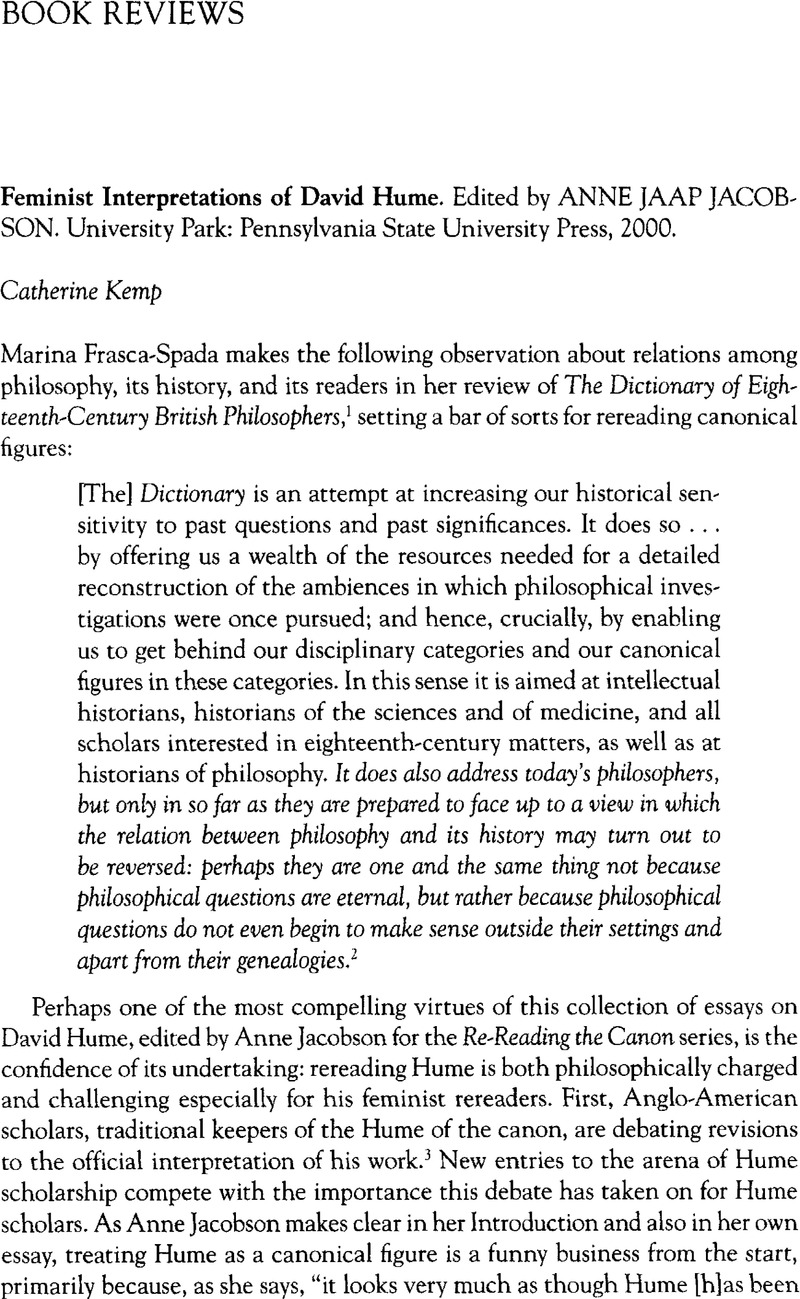Article contents
Feminist Interpretations of David Hume. Edited by Anne Jaap Jacob-Son. University Park: Pennsylvania State University Press, 2000.
Review products
Published online by Cambridge University Press: 25 March 2020
Abstract

Information
- Type
- Book Reviews
- Information
- Copyright
- Copyright © 2005 by Hypatia, Inc.
References
Notes
1. Yolton, Price, and Stephens, eds., Thoemmes Press 1999. Reviewed in Frasca-Spada 2001, “The Many Lives of Eighteenth-Century Philosophy,” British Journal for the History of Philosophy, vol. 9 (1): 135–44.
2. Frasca-Spada, 143–45, emphasis added.
3. See Rupert Read and Kenneth Richman, The New Hume Debate (New York: Routledge, 2000).
4. See Read and Richman. See also Jacobson's essay for the collection, 60–84.
5. The Hume of historians, economists, and aestheticians has always been more interesting than that of the philosophers. See for example Mary Shaw Kuypers, Studies in the Eighteenth Century Background of Hume's Empiricism (New York: Russell & Russell, 1966); and M. A. Stewart (ed.) Studies in the Philosophy of the Scottish Enlightenment, (New York: Oxford University Press, 1990).
6. In a review of Annette Baier's A Progress of Sentiments, Páll Ardal remarks, “It is a common characteristic of Hume scholars that they love Hume.”“Depression and Reason,”Ethics 103 (April 1993): 541.
7. From the title of Baier's essay for the collection. Baier, “Hume: The Reflective Women's Epistemologist?” 19–38. References in the text to the collection are by page number.
8. Jacobson acknowledges the importance of Baier's work in her Introduction (2). See A Progress of Sentiments (Cambridge: Harvard University Press, 1991). See also Baier, Moral Prejudices (Cambridge: Harvard University Press, 1995).
9. Frasca-Spada, 143–45.
- 1
- Cited by

